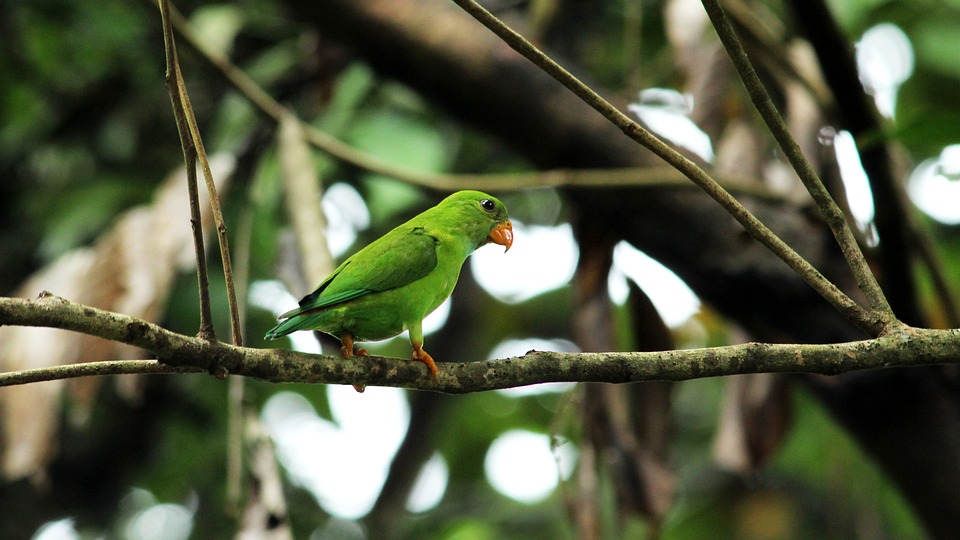Parrots are intelligent creatures that can easily be motivated by food rewards during training sessions. However, excessive focus on food rewards can lead to distractions and hinder the progress of training. In this article, we will explore effective techniques to discourage parrots from getting easily distracted by food rewards, ensuring more successful and focused training sessions.
Understanding the Negative Impacts of Over-reliance on Food Rewards
While food rewards can be highly effective in motivating parrots during training, relying too heavily on them can have negative consequences. Parrots may become fixated on the food instead of paying attention to the desired behavior or task. This can lead to a lack of focus and a decreased ability to learn and retain new commands or behaviors. Additionally, excessive reliance on food rewards can create a dependency that may be difficult to break, making it challenging to transition to other reinforcement methods.
Establishing a Solid Foundation: Creating a Balanced Training Environment
To minimize distractions from food rewards, it is crucial to create a balanced training environment that provides mental and physical stimulation. Parrots are highly intelligent and curious creatures, so incorporating interactive toys and enrichment activities can help keep their minds engaged and reduce their fixation on food. Additionally, establishing a consistent training schedule will create a sense of routine and predictability for your parrot, helping them stay focused during training sessions.
Gradual Transition from Food Rewards to Alternative Reinforcements
To minimize distractions from food rewards, it is essential to gradually transition to alternative reinforcements. Identifying and utilizing different types of rewards, such as verbal praise and attention, can be highly effective in motivating parrots. Incorporating playtime and social interactions as rewards can also strengthen the bond between you and your parrot while providing additional motivation.
Implementing the “Premack Principle”
The Premack Principle is a valuable tool in minimizing distractions caused by food rewards. This principle states that a preferred activity can be used as a reinforcer for a less preferred activity. By utilizing preferred activities, such as flying or exploring, as rewards, you can gradually reduce the reliance on food rewards while maintaining your parrot’s motivation.
Implementing Gradual Fading Techniques
Gradual fading techniques can also help minimize distractions from food rewards. By decreasing the frequency and visibility of food rewards, your parrot will learn to focus on the desired behavior rather than the food. Intermittent reinforcement schedules, where rewards are given randomly rather than every time, can also help maintain motivation while reducing reliance on food rewards. Additionally, encouraging self-rewarding behaviors, such as solving puzzles or playing with toys, can further minimize distractions.
Handling Setbacks and Challenges
It is essential to approach parrot training with patience and perseverance. Setbacks and challenges are a natural part of the training process, and it is crucial not to get discouraged. If your parrot shows resistance or struggles with distractions, take the time to evaluate the training environment and make any necessary adjustments. Seeking professional guidance from an avian behavior specialist can also provide valuable insights and support.
FAQs: Frequently Asked Questions
Q1. Will my parrot lose motivation if I reduce food rewards?
A1: While reducing food rewards may initially cause a slight decrease in motivation, implementing alternative reinforcements and the Premack Principle will help maintain your parrot’s motivation throughout the training process.
Q2. What if my parrot refuses to engage in training without food rewards?
A2: If your parrot shows resistance, it is essential to evaluate the training environment and ensure that it provides enough mental and physical stimulation. Additionally, gradually fading food rewards and incorporating alternative reinforcers will help motivate your parrot.
Q3. Can I still use food rewards occasionally during training?
A3: Yes, occasional use of food rewards can be beneficial. However, it is essential to strike a balance and gradually reduce their reliance to minimize distraction.
Q4. How long will it take for my parrot to adjust to the reduced use of food rewards?
A4: The adjustment period varies for each parrot. Patience, consistency, and the utilization of effective training techniques will eventually lead to your parrot’s adaptability and decreased reliance on food rewards.
Conclusion:
Training parrots is an exciting and rewarding endeavor, but excessive reliance on food rewards can hinder progress and cause distractions. By gradually transitioning to alternative reinforcements, implementing the Premack Principle, and utilizing fading techniques, you can minimize your parrot’s distraction from food rewards and achieve more focused and successful training sessions. Remember, building a strong bond through positive reinforcement and engaging activities will contribute to a well-trained and happy parrot.









